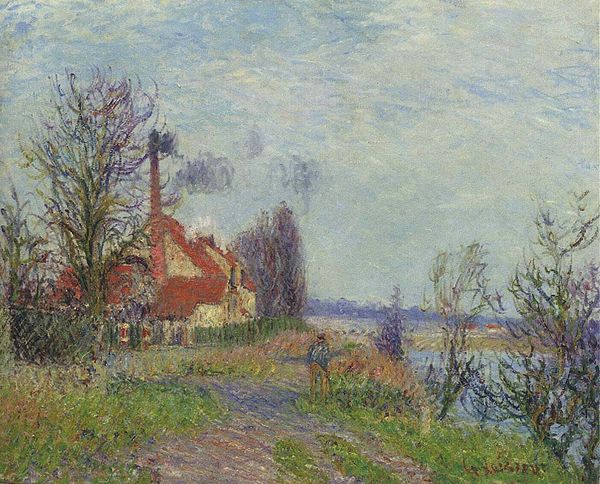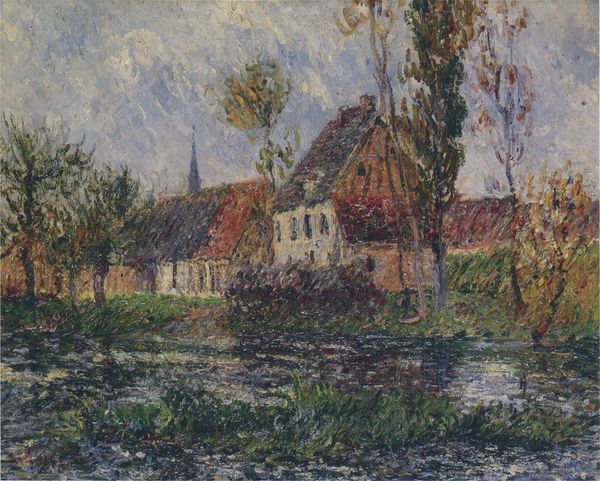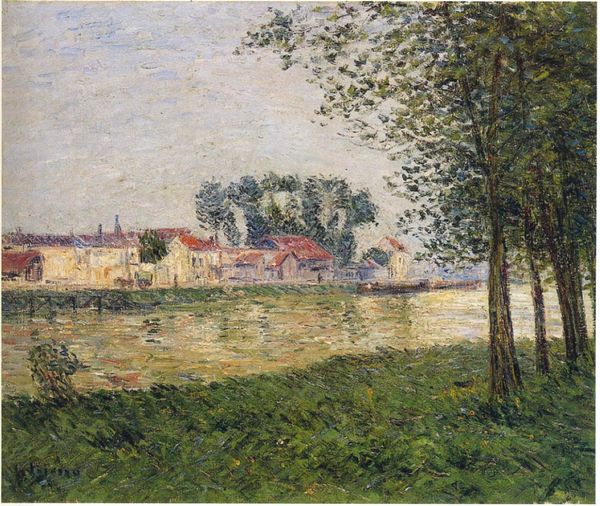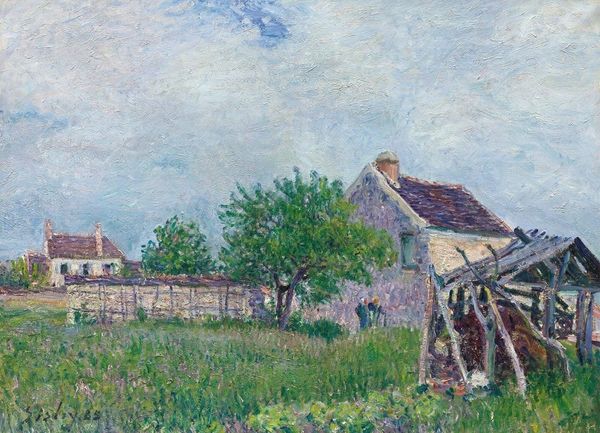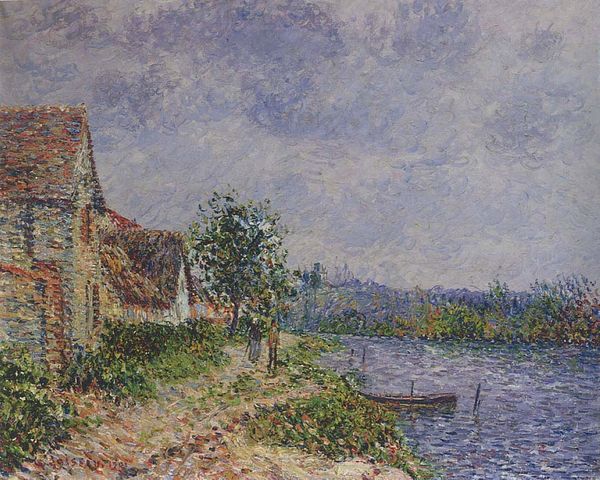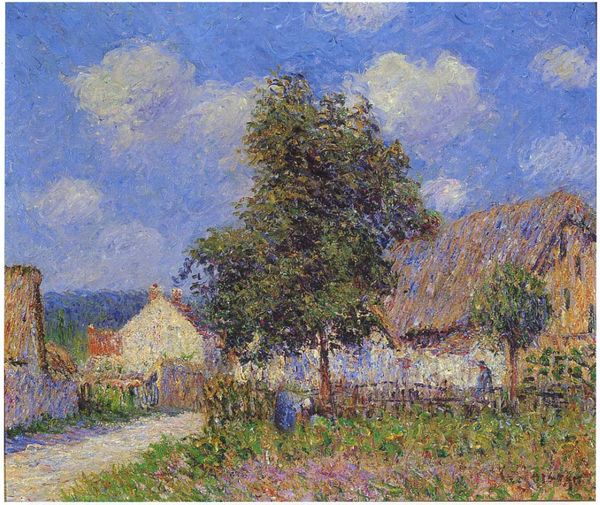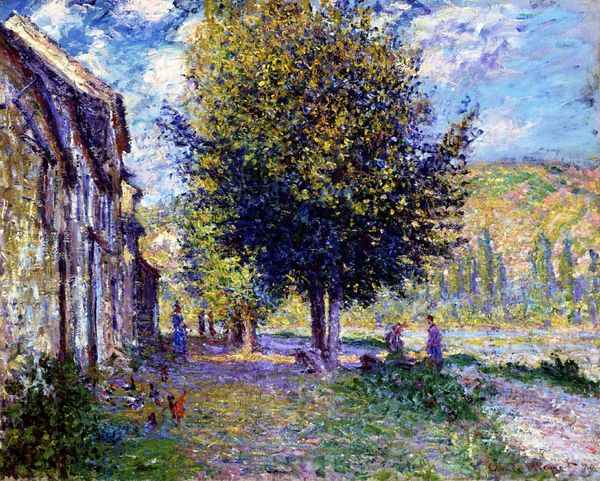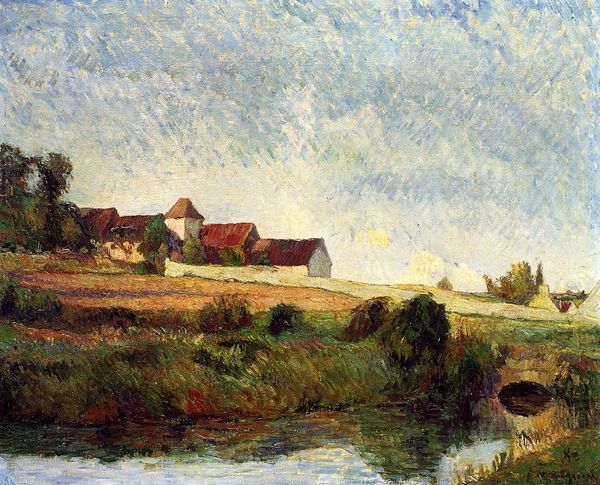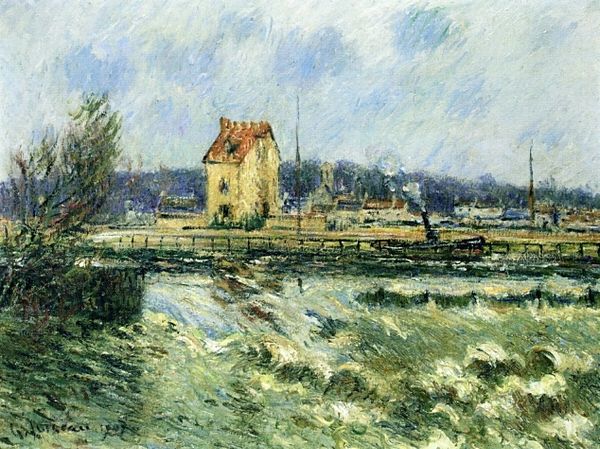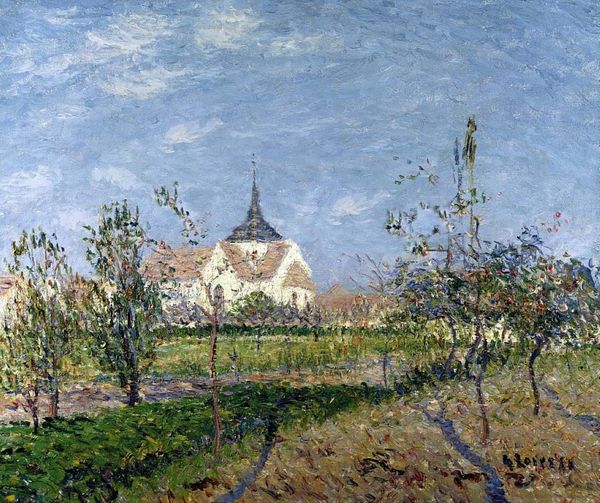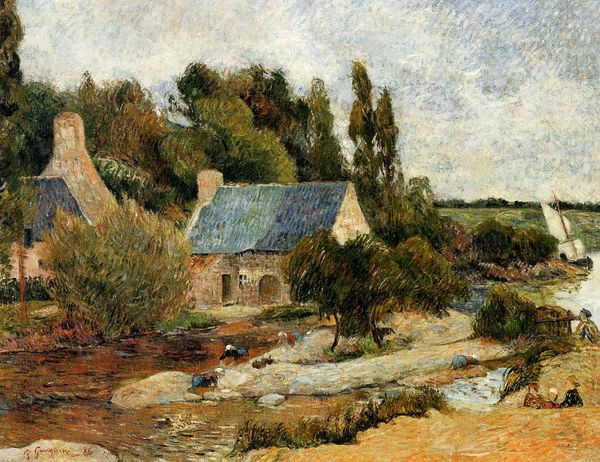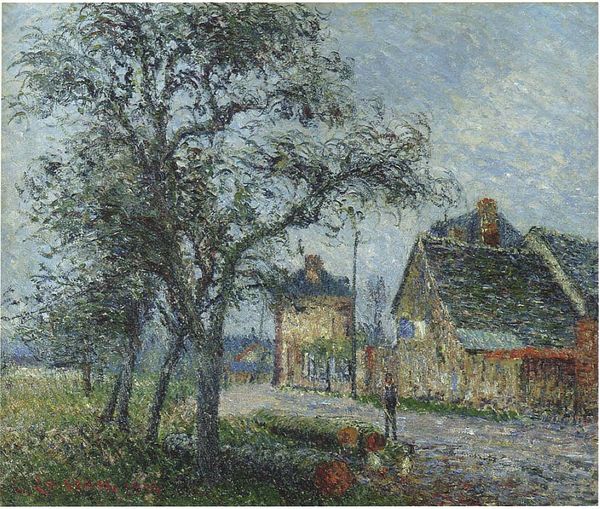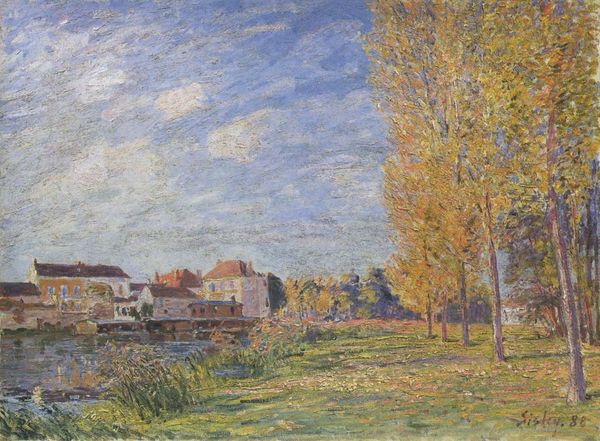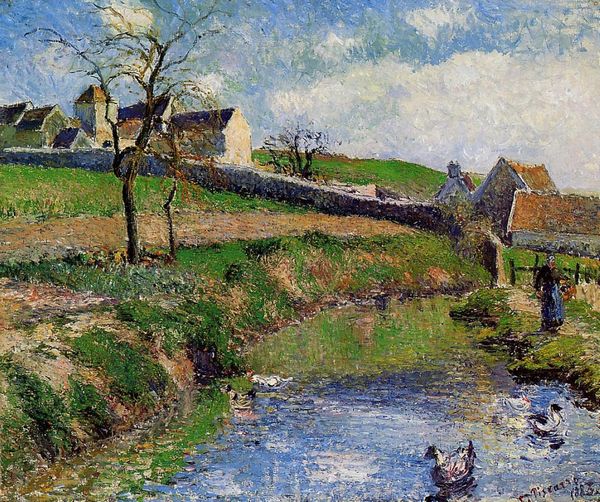
painting, plein-air, oil-paint
#
tree
#
rural-area
#
painting
#
impressionism
#
plein-air
#
oil-paint
#
landscape
#
river
#
house
#
impressionist landscape
#
nature
#
form
#
forest
#
naturalistic tone
#
natural-landscape
#
water
#
cityscape
#
naturalism
#
nature
#
natural environment
#
building
Copyright: Public domain
Curator: We're now looking at "Hendreville by the Eure River," a painting by Gustave Loiseau. Editor: Ah, yes, there is an instant sense of tranquility here, almost hazy. I see these little brushstrokes of light bouncing across the water’s surface. Curator: It is such a stunning work. Loiseau was very dedicated to plein-air painting and often set up his easel along the banks of the Eure. The repetitive and broken brushstrokes were quite distinctive of his own impressionist approach. Editor: What do you think the choice of such ordinary scenery tells us, though? A house, some trees… it's not conventionally picturesque, yet feels so deeply satisfying. It's like he’s finding the extraordinary in the everyday labor that built those places. Curator: Precisely. We must acknowledge the artist’s deliberate engagement with depicting a region deeply entrenched in a specific local economy and social environment. Loiseau does not only depict a place. He exposes our own gaze as modern consumers who long for a rural idyll that is inevitably changing through industrial development and evolving infrastructure. Editor: I see a certain melancholy there, even while he celebrates this slice of life. Perhaps a premonition that this place will disappear to make way for something else entirely. It's fascinating how he transforms these humble materials, paint and canvas, into such a potent emotional experience. I feel transported! Curator: Loiseau’s focus, for sure, was not only on documenting. But more about revealing to us his understanding of a local scene through the manual labor of constructing an image of that region, creating in the end a commodity aimed for the consumption of a determined social sphere. Editor: Looking at it that way opens up even deeper meanings, doesn't it? He's capturing not just a view but an entire cultural moment. And in the process, implicating all of us who engage with the work. Curator: Definitely. It allows us to reassess our ideas around notions of "landscape" and also "style." Editor: It makes one pause and reflect about what matters, and how we connect with these landscapes, natural or manufactured. What do you take away? Curator: An understanding of our historical construction as active observers and historical agents within it.
Comments
No comments
Be the first to comment and join the conversation on the ultimate creative platform.
